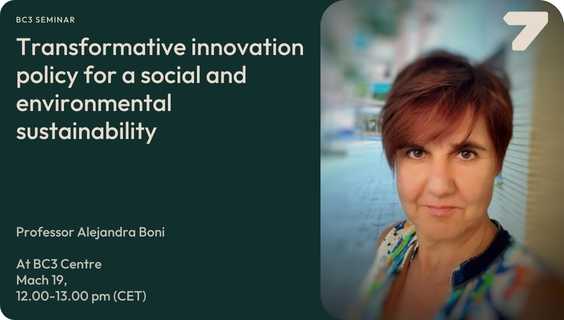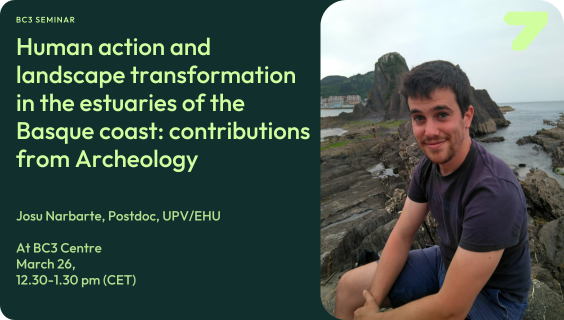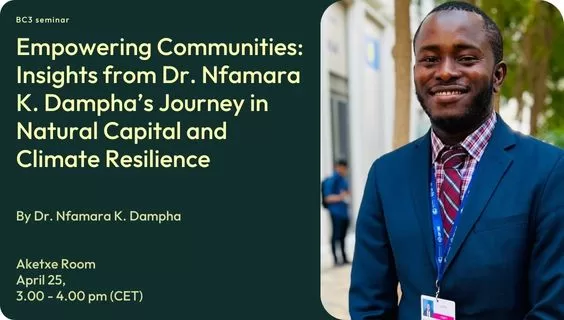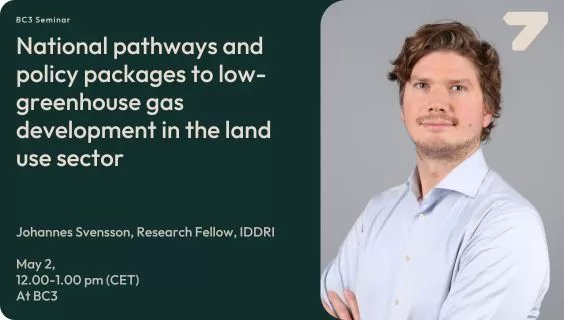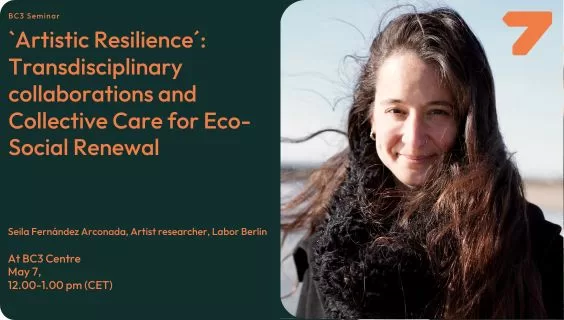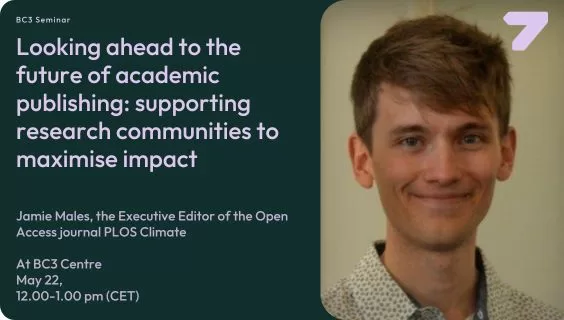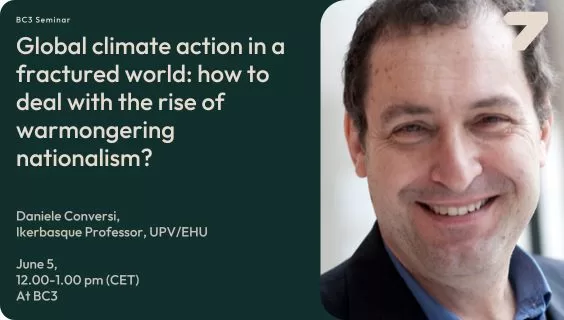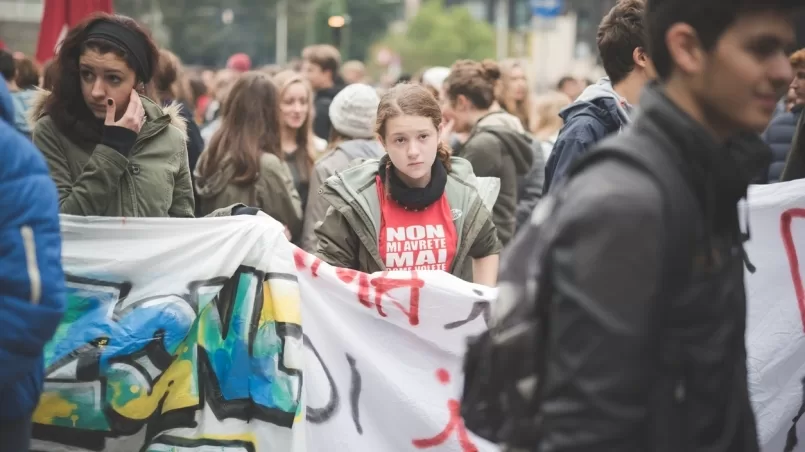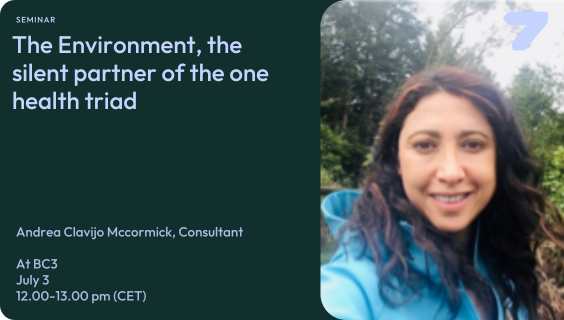Transformative innovation policy for a social and environmental sustainability
BC3-Basque Centre for Climate Change Sede Building 1, 1st floor, Scientific Park of the University of the Basque Country, Leioa, Bizkaia, SpainThis seminar we aim to create the arena for the debate on what to adapt, what to conserve, how to reduce landscape vulnerabilities to adapt to climate change. We think this seminar would be for special interests for those researchers working on SO 3 and 4 and want to find convergences, but also for every research that is based in the Basque Country and want to understand better the interconnections between humans and landscape in the long run.
Human action and landscape transformation in the estuaries of the Basque coast: contributions from Archeology
BC3-Basque Centre for Climate Change Sede Building 1, 1st floor, Scientific Park of the University of the Basque Country, Leioa, Bizkaia, SpainThis seminar we aim to create the arena for the debate on what to adapt, what to conserve, how to reduce landscape vulnerabilities to adapt to climate change. We think this seminar would be for special interests for those researchers working on SO 3 and 4 and want to find convergences, but also for every research that is based in the Basque Country and want to understand better the interconnections between humans and landscape in the long run.
Empowering Communities: Insights from Dr. Nfamara K. Dampha’s Journey in Natural Capital and Climate Resilience
BC3-Basque Centre for Climate Change Sede Building 1, 1st floor, Scientific Park of the University of the Basque Country, Leioa, Bizkaia, SpainHow can the proposed adaptation strategies necessarily impact populations in terms of positive changes to their lifestyles? The Centre de Suivi Ecologique (CSE) and the University of Gaston Berger (UGB) in Senegal, based on science and traditional ecological knowledge (TEK), are working to offer data, products and services that facilitate transformational change.
National pathways and policy packages to low-greenhouse gas development in the land use sector
BC3-Basque Centre for Climate Change Sede Building 1, 1st floor, Scientific Park of the University of the Basque Country, Leioa, Bizkaia, SpainThis presentation will first focus on low-GHG development pathways for agriculture, forestry and land use (AFOLU) in Brazil, India and Indonesia, developed together with in-country research teams in the respective country. Specifically, it will present an analysis of the importance of the AFOLU sector for national emission reductions and the respective drivers of transformation in AFOLU in the three countries. Second, we will explore how to draw policy implications from the pathways, and the first steps towards the definition of a framework for the analysis of policy packages in AFOLU will be presented.
`Artistic Resilience´: Transdisciplinary collaborations and Collective Care for Eco-Social Renewal
BC3-Basque Centre for Climate Change Sede Building 1, 1st floor, Scientific Park of the University of the Basque Country, Leioa, Bizkaia, SpainThis talk explores the concept of “Artistic Resilience” through the lens of the speaker’s experience in diverse international collaborative projects. The presentation positions artistic practice itself as a form of resilience, offering tools and questions for rebuilding a more balanced relationship with the environment and society.
KONEKTA IDEIAK GREEN JAN: Elikadura Jasangarria | KONEKTA IDEIAK GREEN JAN: Alimentación Sostenible
"GREEN JAN" elikadura jasangarriari buruzko proiektua da, Bilboko Udaleko Gazteria eta Kirol Arloak sustatua, BC3ren laguntzarekin. Proiektuaren helburua elikadurak 2030 Agendarekiko dituen erronken inguruan sentsibilizatzea, ekimenak […]
Looking ahead to the future of academic publishing: supporting research communities to maximise impact
BC3-Basque Centre for Climate Change Sede Building 1, 1st floor, Scientific Park of the University of the Basque Country, Leioa, Bizkaia, SpainIn this seminar, Jamie will discuss how the publishing landscape is evolving in response to internal and external pressures, the way publishers are engaging with AI (reactively and proactively), new publisher business models, and the future of Open Science. He will also briefly introduce PLOS Climate as a mission-led, multidisciplinary venue for climate research, and explain opportunities to be involved in the journal’s growing community.
Global climate action in a fractured world: how to deal with the rise of warmongering nationalism?
BC3-Basque Centre for Climate Change Sede Building 1, 1st floor, Scientific Park of the University of the Basque Country, Leioa, Bizkaia, SpainOne of the most pervasive key political obstacles to global climate action can be found in the existing geopolitical order, which divides the word into separate nation-states, most often supported by the ideology of nationalism.
BC3 Summer School: Climate Crisis and the Rise of Authoritarian Populist Movements in Europe
BC3-Basque Centre for Climate Change Sede Building 1, 1st floor, Scientific Park of the University of the Basque Country, Leioa, Bizkaia, SpainAuthoritarian populist movements are emerging in the global context (e.g. in the US, Russia, India, Brazil, Argentina), and Europe (e.g. in Holland, Finland, France, Hungary). This phenomenon shares several characteristics at an international level, partly derived from the current phase of exhaustion of a globalized economic model, which in turn entails a concatenation of cyclical and structural crises (“poly-crises”) that generate high levels of insecurity and uncertainty in society. At the same time, the rise of populist movements is revealing the weaknesses of the political model of representative democracy.
The Environment, the silent partner of the one health triad
BC3-Basque Centre for Climate Change Sede Building 1, 1st floor, Scientific Park of the University of the Basque Country, Leioa, Bizkaia, SpainThe One Health approach is a global public health strategy that emphasises collaboration and communication across human, animal, and environmental health domains to achieve optimal well-being. Originating in response to zoonotic outbreaks like SARS and Ebola (and later COVID), it is integral to various global commitments such as the Sustainable Development Goals and the Paris Agreement.

